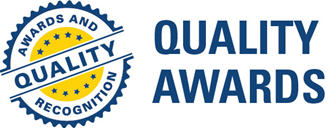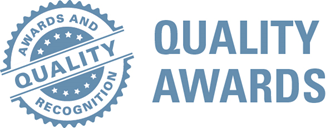

 Quality Awards
Quality Awards
Two Temple/St. Luke’s medical students are leading a group that’s hard at work creating an evening-hours care clinic in downtown Allentown to promote access to care for underserved and vulnerable populations.
Second-year students Taj (Saran) Singh and Kyle Tio spent the last year working with St. Luke’s Community Health developing the Student-Led Interprofessional Care Center, or SLICC, to provide a space that both supports the needs of the community while enhancing medical students’ experience serving vulnerable populations. SLICC will operate at The Center, a Treatment Trends, Inc. facility located at 315 West Linden St. The Center opened last year and provides connections in a safe, supportive environment for people at all stages of recovery.
SLICC is scheduled for a grand opening in the evening of May 18.
The Temple/St. Luke’s School of Medicine at St. Luke’s University Hospital in Fountain Hill is the Lehigh Valley’s first and only four-year medical school, where the region’s brightest young minds go to become doctors. By cultivating local medical talent, such as Singh and Tio, St. Luke’s is helping the region to secure its health and well-being amid a worsening doctor shortage nationally.
“We can do more to give back to the community,” Singh said.
Adds Tio, “There’s so much need out among the at-risk population that we had to do something.”
SLICC, in partnership with Treatment Trends, is supported by a 150th-year Anniversary grant from St. Luke’s University Health Network.
Along with classmates from the School of Medicine and staff at nearby St. Luke’s Sacred Heart Campus, the duo began distributing items such as clothing and hygiene kits at SLICC in November in preparation for the grand opening.
Singh and Tio developed a survey to better understand the needs of the community they wish to serve. Those results, along with conversations with community members and St. Luke’s staff, and the insights from the Network’s latest Community Health Needs Assessment, helped inform their plans for the center.
“We’re hoping to start building trust in this community even before we officially open,” Singh explains. “There’s often a strained relationship between minority groups and the healthcare system that needs to be addressed. People won’t listen to advice on their health if they don’t trust their providers.”
He learned the importance of making connections with community people while teaching school in an economically stressed section of Baltimore before starting medical school at Temple/St. Luke’s.
Once they hold the official ribbon-cutting ceremony in May, St. Luke’s physicians, nurses and other providers will support medical students in their efforts to give free health checkups, perform minor treatments and hand out Narcan overdose-reversing kits and other medicines that treat addiction.
“Our medical students truly care about our underserved community and will do anything to help people who do not have readily available access to necessities of daily living like food, water and clothing,” said Ikemefuna Akusoba, MD, St. Luke’s bariatric surgeon and director of student advocacy and community engagement at Temple/St. Luke’s School of Medicine, who supported Singh and Tio on the project. “Our medical students understand that health-related outcomes are worse in the underserved populations, and through SLICC, they hope to intervene.”
Singh said he’s motivated to help the less fortunate by practicing “sewa,” a key tenet of Sikhism, the Indian religion he and his family practice, which emphasizes the importance of selfless service to humanity in need. Born in Pottsville, he has lived in the Lehigh Valley for most of his life. His father is a retired physician in Mahanoy City, Schuylkill County, and his sister an oral surgeon.
Both Singh and Tio also volunteer with St. Luke’s Parish Nursing in partnership with Laundry on Linden, which provides free laundry services for people who are experiencing homelessness or struggling with other financial hardships.
Tio, born and raised in New York City, calls SLICC “a passion project,” for him, which he was inspired to tackle by the Temple University medical students in North Philadelphia who run a similar facility.
“We see how many people need help accessing just the basics for living, and we want to offer those services at SLICC as an extension of other St. Luke’s Community Health projects,” Singh said.
Tio agrees: “We want to start something that will make a difference right where we live.”